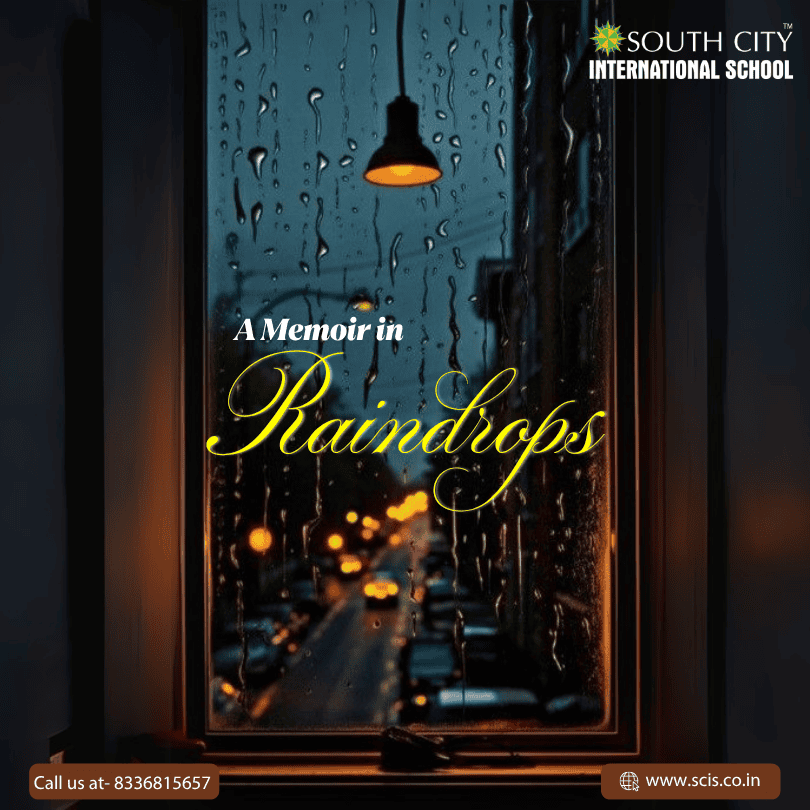South City International School

 17 Jun 2025
17 Jun 2025 Monsoon is not merely a shift in weather, it is a state of mind, a seasonal philosophy. For those of us shaped by the humid geometry of the Indian subcontinent, the rains are not incidental; they are intimate. As a student immersed in the study of environmental consciousness and cultural narratives, I often find myself returning both academically and emotionally to the monsoon.
The first droplets, I believe, don’t fall on the soil but on the self. I still recall how Kolkata’s skies would sigh with a monsoon stillness before exhaling into thunder. That earthy perfume “mitti ki khushboo” was not just chemistry; it was a signal. A signal that the land was remembering who it was and perhaps asking us to do the same.
There’s a transformative humility to this season. It lowers its weight onto cities and minds alike—teaching in silence what syllabi often forget. During my early school days, I would often sit by the window as my books lay untouched, just listening to the patterned chaos outside. It never felt like a distraction. It felt like dialogue.
Somewhere along the way, I had noted down this line: “Rain doesn’t interrupt life; it invites reflection.” Whether I coined it or heard it long ago, I can’t recall. But it lingers, because it encapsulates what monsoon really does, it slows us just enough to hear ourselves think. Maybe that’s why the rains have always inspired a particular kind of thought; not grand or performative, but quiet and enduring.
I sometimes wonder whether the rain is less about water and more about time. It doesn’t just fall it returns. And in that return lies a kind of cyclic grace. A reminder that growth often comes not from heat or light, but from soaking long and deep in moments of vulnerability.
Even now, across oceans and institutions, when the clouds gather and the first drop streaks down the windowpane, I know: it’s not nostalgia. It’s recognition.
Kushaan Roy
Class XII-B
Philosopher House
 375, Prince Anwar Shah Road, Kolkata,
375, Prince Anwar Shah Road, Kolkata,  admissions@scis.co.in
admissions@scis.co.in